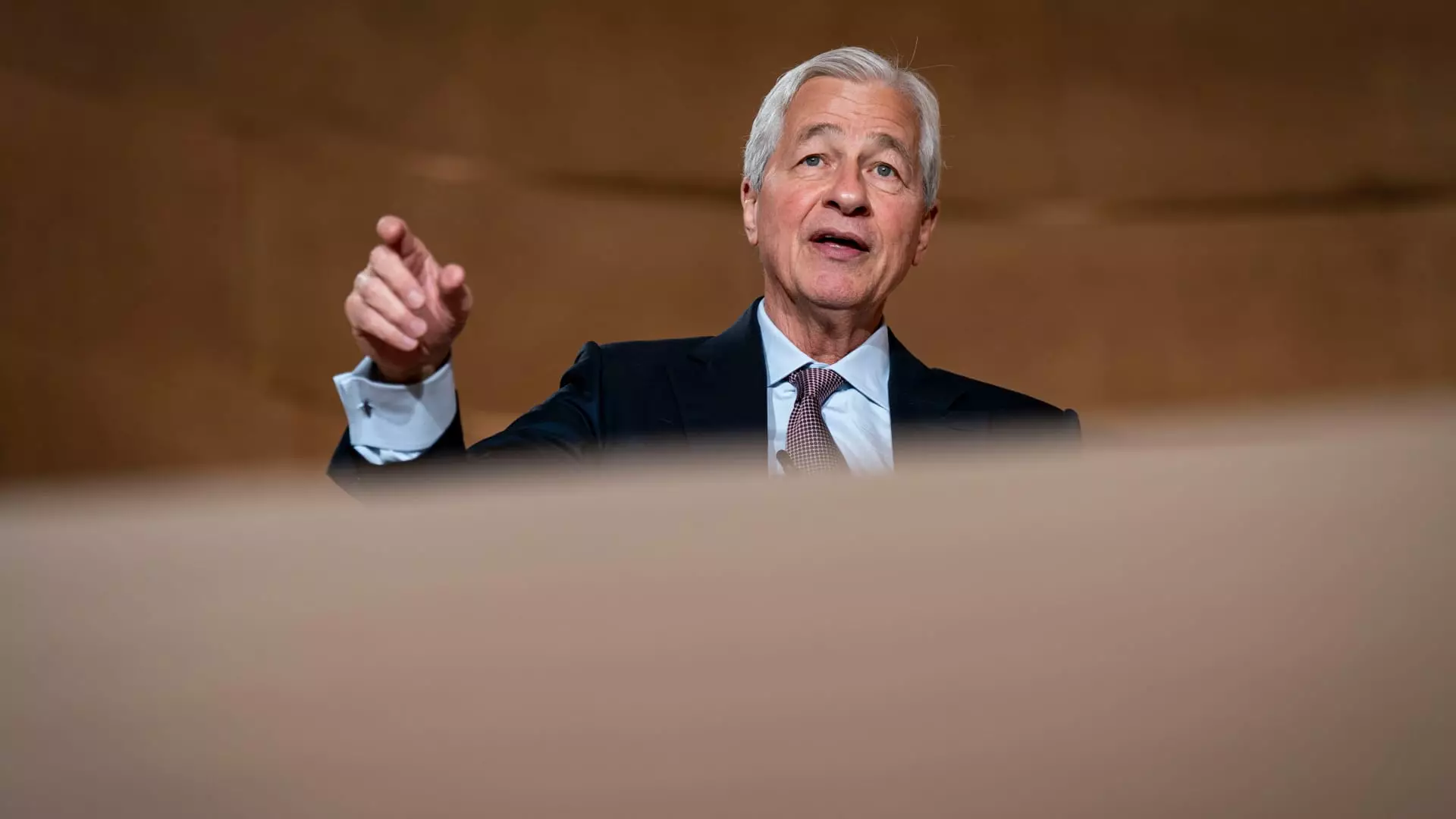In a strikingly candid address, Jamie Dimon, the CEO of JPMorgan Chase, laid bare a grim outlook for the U.S. financial landscape during the bank’s recent investor day meeting in New York. While many are basking in an apparent economic resurgence, Dimon cautions that the turbulence created by soaring U.S. deficits, punitive trade tariffs, and a fraught international climate could spell disaster if left unchecked. This isn’t just another corporate speech; it’s a clarion call for serious introspection regarding the underlying vulnerabilities that permeate the market.
Dimon suggests that market participants and central bankers alike harbor an exaggerated belief in their capacity to navigate these risks. The persistent deficits, coupled with what he terms a “complacent” central banking system, create a perfect storm that could unleash significant economic upheaval. His emphasis on the inadequacy of current market valuations to reflect these risks raises an uncomfortable question: Are we collectively ignoring the ticking time bomb that is fiscal irresponsibility?
The Illusion of Stability
It’s particularly jarring to witness market resilience in the face of such precarious indicators. After a minor dip earlier this year, the stock market made a swift recovery, which, according to Dimon, showcases an extraordinary degree of complacency among investors. This unwavering faith in the market, bolstered by artificially low interest rates, sidesteps the reality that tumultuous trade negotiations and burgeoning deficits are not expected to evaporate overnight.
While the average investor may feel on solid ground, Dimon’s insights challenge the status quo, imploring shareholders to consider the adverse ramifications of current economic policies. The failure to address these issues doesn’t merely represent a financial oversight; it threatens to undermine the very stability upon which U.S. economic superiority rests.
Self-Deception in Corporate Earnings
Moreover, Dimon predicts a steep decline in earnings growth for S&P 500 companies, moving from a hopeful 12% at the year’s outset to an alarming 0% in the coming months. This revelation raises serious concerns about the reliability of profit forecasts, which many investors rely on to shape their strategies. If Dimon’s analysis holds true, the ramifications for stock prices could be severe, leading investors to rethink their positions as earnings projections are adjusted downwards.
The realization that the markets might be primed for stagnation rather than growth casts a shadow over broader economic optimism. This essential recalibration of expectations serves as a stark reminder that in an era punctuated by heightened economic uncertainty, stakeholders must be prepared for uncomfortable truths rather than deluding themselves with false hopes.
Trade Wars and Their Fallout
The discourse surrounding trade wars becomes an essential focal point within Dimon’s assertions. As President Trump’s trade policies continue to create ripples of uncertainty across global markets, Dimon notes that the implications for inflation are more worrisome than currently perceived. Unforeseen trade barriers can elevate costs, prompting businesses to adjust prices, which ultimately impacts consumers. With inflation and economic growth exerting dual pressures, the specter of stagflation looms larger than many are willing to admit, raising valid concerns about the ongoing impacts of political decisions on average Americans.
In a climate where companies adopt a “wait-and-see” approach to acquisitions and expansions, the traditional engines driving economic growth seem to stall. Dimon underscores this hesitation as a broader concern for market health, revealing a corporate sector that might be stymied by uncertainty rather than empowered by potential prosperity.
The Future Leadership of JPMorgan Chase
As Dimon reflects on his tenure at the helm of JPMorgan Chase, he hints at a potential transition of power within the organization. His comments emphasize that he is not just considering his legacy but is also preparing for a future that may require nimble leadership capable of guiding the institution through turbulent waters ahead. This foresight recognizes a vital truth: the world of finance isn’t static, and the rapid pace of change demands adaptive prowess.
Yet, as he navigates these discussions, it’s impossible to ignore the broader implications for corporate governance. The issues facing JPMorgan Chase serve as a microcosm of the challenges confronting financial institutions globally, where the stakes could not be higher in an unsteady geopolitical and economic landscape.


Leave a Reply